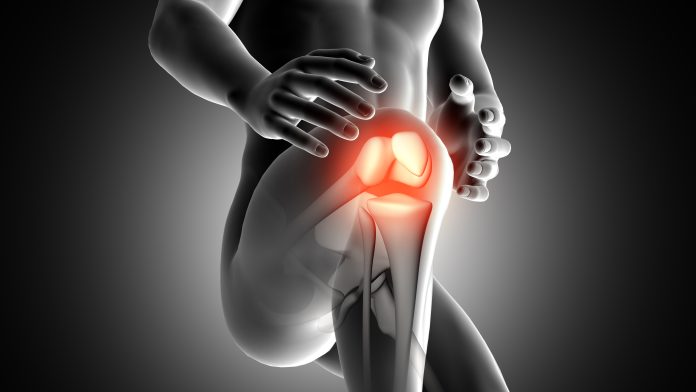
This post may contain affiliate content from which we earn a small commission at no additional cost to you. Read our full disclosure.
Do your knees ache, making simple tasks a challenge? The key to relief might be simpler than you think: weight loss. Scientific studies reveal a strong link between excess weight and persistent knee pain.
Imagine your knees as bridges, with each extra pound adding stress. Inside, precious cartilage acts like a cushion, but excess weight can wear it down.
So, does weight loss help knee pain? That we’ll find out in this guide. For instance, we’ll explore how shedding pounds can be a game-changer, lightening the load on your knees and potentially transforming your daily comfort.
Does Weight Loss Help Knee Pain? Understanding the Link
The Burden of Excess Weight
Carrying additional weight places a substantial burden on the knee joints, the primary support structure for the body. This increased load can result in wear and tear on joint surfaces, a factor contributing to conditions such as osteoarthritis – a leading cause of knee pain.
The Role of Inflammation
Apart from just affecting your body shape, the fat in your body is active in a way that can cause inflammation, releasing substances that can lead to ongoing swelling. This constant inflammation is linked to the development and worsening of arthritis, especially in the knees. So, having too much body fat might not only be a factor in causing knee pain but can also make it worse by triggering inflammation in your joints.
The Weight-Knee Pain Nexus
When you carry extra weight, it can put more pressure on your knees when you walk. This increased load on your knees can lead to the development or worsening of knee pain. Understanding this connection highlights how important it is to manage your weight to reduce knee discomfort and promote overall joint health in the long run.
Scientific Insights Into: Does Weight Loss Help Knee Pain?
Research Findings
A wealth of scientific studies has delved into the intricate relationship between weight loss and knee pain.
A pivotal study published in the Journal of the American Medical Association revealed that a modest 5% reduction in body weight led to a significant decrease in knee pain and improved functional outcomes for overweight and obese individuals.
Impact on Osteoarthritis
Osteoarthritis, the predominant form of knee arthritis, has been a focal point in research investigating the effects of weight loss. Consistent findings suggest that losing weight can impede the progression of osteoarthritis and alleviate associated symptoms.
Impact of Weight Loss on Knee Pain
Scientific evidence underscores a positive correlation between weight loss and diminished knee pain. As individuals shed pounds, the strain on the knee joints is alleviated, providing relief for those grappling with pain.
Additionally, weight loss contributes to the reduction of inflammation, a pivotal factor in conditions such as arthritis, a common culprit behind knee pain.
Practical Strategies
Balanced Diet
Effective weight loss strategies hinge on a combination of a well-rounded, nutritious diet and regular physical activity. Adopting a diet rich in whole foods and low in processed sugars, coupled with engaging in joint-friendly exercises, can promote gradual and sustainable weight loss.
Benefits of Moderate Exercise
Embracing a tailored exercise routine not only facilitates weight loss but also fortifies the muscles surrounding the knee joint.
This dual benefit—weight reduction and enhanced muscle support—contributes significantly to relieving stress on the knees, fostering a more robust joint environment. The amalgamation of exercise and weight loss emerges as a dynamic strategy for combating knee pain.
Personalized Approaches
Individual Variations
Acknowledging the diversity in body composition, fitness levels, and underlying causes of knee pain, personalized weight loss approaches may be more effective. Consulting with healthcare professionals, including nutritionists and physical therapists, facilitates tailoring strategies to individual needs.
Consistency is Key
Sustainable weight loss is not an instantaneous achievement but a gradual process demanding consistency. Rapid weight loss methods may prove ineffective and even detrimental, leading to muscle loss and weakening the supportive structures around the knee. A steady and patient approach is more likely to yield enduring benefits.
Managing Expectations
While weight loss unquestionably contributes to alleviating knee pain, it may not be a universal panacea. Factors like genetic predisposition, existing joint damage, and other medical conditions influence the degree of improvement.
Managing expectations and focusing on overall health prove more beneficial than fixating solely on the number on the scale.
The Psychological Aspect

Weight loss transcends the physical realm, extending into the psychological domain. Achieving and maintaining a healthy weight often correlates with improved self-esteem and mental well-being.
This positive shift in mindset serves as a powerful motivator, empowering individuals to adhere to lifestyle changes, including regular exercise and a balanced diet, fostering sustained knee health.
One more question that comes to many people’s minds is whether can we lose weight through Intermittent Fasting and if we can then how much weight can be reduced from Intermittent Fasting, you might find more insights in our article “How Much Weight Loss Can Be Expected With Intermittent Fasting?”
Cautionary Considerations
Rapid or extreme weight loss methods may lead to muscle loss and nutritional deficiencies, potentially exacerbating joint issues.
A gradual and sustainable approach is advised, with individuals seeking guidance from healthcare professionals to navigate potential pitfalls and ensure a well-rounded approach to weight loss and knee health.
Tips for losing weight
Losing weight involves a combination of healthy eating, regular physical activity, and lifestyle changes. Here are some tips to help you on your weight loss journey:
Set Realistic Goals:
- Establish achievable and realistic short-term and long-term goals.
- Aim for a gradual and sustainable weight loss of 1-2 pounds per week.
Healthy Eating:
- Focus on whole, nutrient-dense foods like fruits, vegetables, lean proteins, whole grains, and healthy fats.
- Control portion sizes to avoid overeating.
- Stay hydrated by drinking plenty of water throughout the day.
Balanced Diet:
- Include a balance of macronutrients (carbohydrates, proteins, and fats) in each meal.
- Avoid extreme diets or cutting out entire food groups, as they are often unsustainable.
Mindful Eating:
- Pay attention to hunger and fullness cues.
- Eat slowly and savor each bite, allowing your body to register fullness.
Regular Exercise:
- Engage in both aerobic exercises (e.g., walking, running, cycling) and strength training.
- Aim for at least 150 minutes of moderate-intensity aerobic activity per week and strength training exercises at least twice a week.
Create a Routine:
- Establish a consistent eating and exercise routine.
- Plan meals and snacks ahead of time to avoid impulsive, unhealthy choices.
Sleep Well:
- Ensure you get adequate and quality sleep as lack of sleep can impact weight loss efforts.
Manage Stress:
- Practice stress-reducing techniques such as meditation, deep breathing, or yoga.
- Stress can contribute to emotional eating, so finding healthy ways to cope is essential.
Keep a Food Journal:
- Track what you eat and drink to become more aware of your habits.
- Identify patterns and make adjustments as needed.
Stay Consistent:
- Weight loss takes time, and consistency is key.
- Be patient and celebrate small victories along the way.
Stay Accountable:
- Share your goals with friends or family for support.
- Consider working with a healthcare professional or a registered dietitian for personalized guidance.
Avoid Liquid Calories:
- Be mindful of sugary drinks and excessive calorie intake from beverages.
Remember, it’s important to make sustainable lifestyle changes rather than opting for quick fixes. Consult with a healthcare professional before making significant changes to your diet or exercise routine, especially if you have any underlying health conditions.
Beyond Body – The Ultimate Ally in Weight Loss
Beyond Body sets itself apart through personalized meal and fitness plans, carefully designed to align with individual preferences. The 28-day tailored meal program turns the pursuit of healthful eating into a delightful adventure, cultivating an appreciation for nourishing and tasty meals.
Beyond Body goes beyond being just a weight management tool; it serves as a customized companion guiding you toward a more fulfilling and healthier life path.
Weight loss can alleviate knee pain by reducing the load on the joints, and minimizing stress and inflammation. Shedding excess weight serves as a natural and effective strategy to ease knee discomfort and improve overall joint health.
That said, if you’re interested in trying this app read our full Beyond Body review then click here to take a quick quiz and get started. You can even get up to 60% off by using the code below:


Beyond Body - 67% Off Discount Code
Final Words
So, does weight loss help knee pain?
To sum up, losing weight helps reduce the load on your knees, making them happier campers. It’s like giving your knees a break – less weight, less stress, less pain. So, if you’re looking for a simple way to ease the ache, consider dropping some pounds. Your knees might just thank you with a dance of joy.
- Online Vs In-Person Certification Courses: Pros & Cons - April 23, 2024
- Tips for Acing Your Fitness Certification Exam - April 21, 2024
- Balancing Work-Life as a Fitness Trainer: Complete Guide - April 19, 2024
Disclosure: In the spirit of full disclosure, DIYactive.com may be compensated in exchange for featured placement of certain reviews or links on this website. View our full disclosure.



